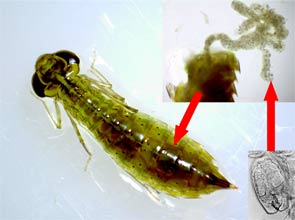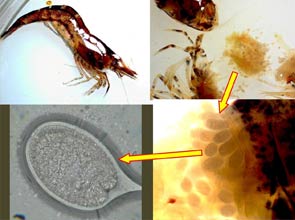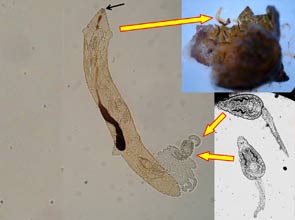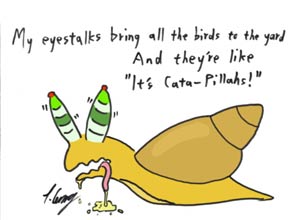Evolutionary Ecology of Parasitism Lab
Welcome to the Evolutionary Ecology of Parasitism Lab (EEPL)
Parasitism is by far the most common way of life on this planet - all types of organisms are infected with parasites of some sort at some stage of their lives, and parasitism has independently evolved multiple times in many different lineages of life. Parasites also play key (but hidden) roles in shaping the ecology and evolution of their hosts as well as how they interact with their environment. The research projects we conduct in this lab seek to understand how parasites live and what effects they have on their hosts.
Research
EEPL research interests encompass a range of areas...
Because parasitism is such a common way of life and has independently evolved in many different groups, parasites are useful study organisms for asking various different questions which are applicable to most free-living organisms like fish, birds, or trees. At the same time, there are interesting challenges which are unique to parasites due to their life-style such as; finding and successfully establishing in/on a host, evading and/or manipulating the host immune system, altering host behaviour and/or appearance to aid in completing its life-cycle, or sharing a host with other parasites. Parasites are often overlooked due to their comparatively small sizes and because they are tucked away inside the body of their hosts. The study of parasitism offers us a glimpse into a hidden world of biological drama and intrigue which sometimes can have larger ramifications for the rest of the ecosystem. If you have a research/project idea about evolutionary ecology of parasitism that you are interested in exploring, feel free to contact me (tleung6@une.edu.au). The study of parasitism offers us a glimpse into a hidden world of biological drama and intrigue which sometimes can have larger ramifications for the rest of the ecosystem. If you have a research/project idea about evolutionary ecology of parasitism that you are interested in exploring, please contact Dr Tommy Leung. P: +61 2 6773 4083Our research interests encompass (but are not limited to)




Potential research projects include
Contact
E: tleung6@une.edu.au
Our People
Chief Investigator
Dr Tommy Leung
Phone: +61 2 6773 4083
Email: tleung6@une.edu.au
Research Students
Courtney Waters (Honours) - Parasite fauna on the Zebra Top Shell (Austrocochlea porcata) on the Central Coast, NSW.
Related publications from 2005 to the present
My other profiles/sites
Note: The following sites and profiles are not officially affiliated with UNE. The views and opinions expressed on them represent my own and not that of UNE unless explicitly stated.
I also co-administrate and regularly write for the Parasite of the Day blog.
I can also be found (and contacted) via social media platforms including Twitter and Google Plus
Contact
If you are interested in working in this lab or collaborating with us on a project, please contact:
Dr Tommy Leung
Room 117
Zoology (building SO1)
University of New England
Armidale NSW 2351
Australia
Phone: +61 2 6773 4083
Email: tleung6@une.edu.au

